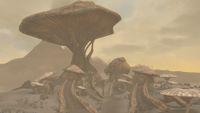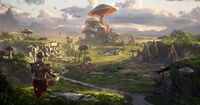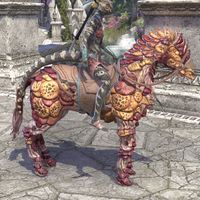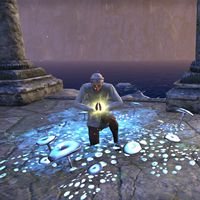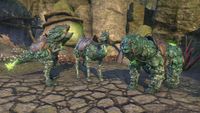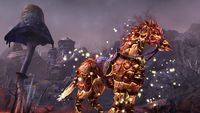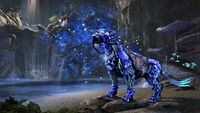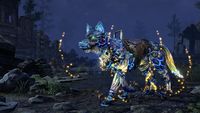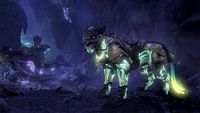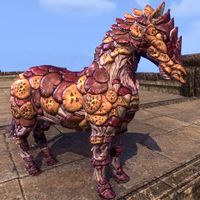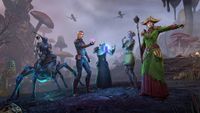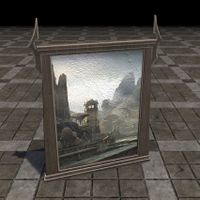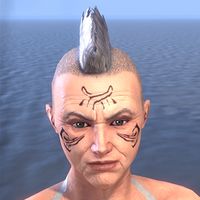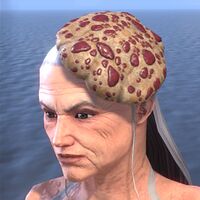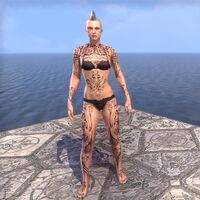Lore:Mycoturgy
Contents
Mycoturgy is a branch of magic involving control and manipulation of fungi. Practitioners of this arcane art are known as Mycoturges, Fungimancers, Shroomtenders, and Sporecrafters.[1][2][3][4]
The Mycoturges are a group of specialized mages within the ranks of House Telvanni, known for their abilities to grow giant mushrooms into any shape they desire, including towers,[5][UOL 1] and creatures made of spores and fungi.[1] Telvanni architecture is dominated by their wizards' tower, a fantastic organic form grown and sculpted from stems, caps, and root-like holdfasts of the native mushrooms. Telvanni villages are comprised of smaller mushroom pods hollowed out for their craftsmen and commoners.[6] Soul Gems can be used to help the tower grow faster and to strengthen its foundations. The process can take several days, and is often assisted by the builders and overseen by the foremen.[7][8][9]
When creating creatures, Telvanni magisters use only the hardiest of the fire-hued fungi when magically coercing them into a new form.[10][11] Archmagister Nelos Otheri was a known mycoturge, and a patron of his coterie of mycoturges, known to be the best in Morrowind. He was known to outline the specifications of the Horse-shaped fungi creature to his coterie, and was known for the creation of the Sadrith Mora Spore Steeds.[1][10]
Though they kept their methods secret,[12] practice of fungi-based magic was not limited to the members of the House Telvanni. Fungimancer's Prayer-Beads are magical beads, which, when invoked, can be used to form a circle of glowing mushrooms around the wielder.[2] Mycoturges often display intricate mushroom markings on their bodies using self-made mycelial inks.[13][14] Achieving mastery grants them the honor of wearing bloodtooth toadstool fascinators as symbols of their skill and expertise in this unique art form.[15] Mycoturge retreats also inspired paintings.[16]
Ahzidal, a great Nordic enchanter was also known to create fungal creatures, such as the Fungiflare Wolf, an ideal wolf mount for dangerous forests and caverns with a vicious temperament by design and nature—fungiflare mushrooms are lethal.[17] Ahzidal made the Shadowcap Cave-Senche's azure glow the centerpiece of the unsettling feline mount, becoming prized by spelunkers as its bioluminescence can light up the darkest caverns without making a sound.[18] Seeking to meld fire with fungi, Ahzidal created the first Embermould Warhorse, formed from char morels often used in stews, the mount can light a rider's way on the darkest winter nights.[19]
Integrating research left behind by Ahzidal, Mage Naleldil created animals to be used as pets from spores some time around 2E 582.[20] Naledil was also a fungimancer and was known for a wide variety of creations. Her Gloomspore horses were made with the usage of the giant lichen.[21] Addition of manic morels from Dementia was known to make her creations more animated.[22] Naledil used bleeding crowns and spores known for their calming properties to create fungi guars,[23][24] mora tapinella to create bears,[25] and scaly pholiota to create camels.[26] Gloomspore Wolves were created from hypha facia, and some of their pups had oxblood fungus spores added to instill fierce guardianship in them.[27][28] She also created Gloomspore Senches, and utilized thunder fungi in the process of their creation.[29][30] Some of them were inspired by the cult of Vaermina.[31] Gloomspore creatures also occur naturally in the caverns of Blackreach.[32][33]
Mycoturgy can be used to create Gloomspore Weapons.[34]
The Wardens were also known for their ability to manipulate fungi with their magical practices.[35][36]
Certain Reachfolk Shamans were known to study magical properties of fungi.[37]
Known Mycoturges[edit]
- Dragon Priest Ahzidal[17][18][19]
- Master Aryon[38]
- Llunela Hleran[7][8]
- Archmagister Nelos Otheri[1][10]
- Mage Naleldil[20]
Gallery[edit]
Notes[edit]
- Mycoturges should not be confused with mycologists, alchemists who specialise in mushrooms and fungi. Mycologists do not use sorcery, but may be employed to nurture and maintain existing Telvanni mushroom towers.[39]
References[edit]
- ^ a b c d Loremaster's Archive - House Telvanni — Divayth Fyr
- ^ a b Fungimancer's Prayer-Beads description in ESO
- ^ Necrom Achievements: Shroomtender Style
- ^ Spore Savant Face Marks antiquity entries
- ^ Kelesan'ruhn's loading screen in ESO: Necrom
- ^ Great Houses of Morrowind
- ^ a b Events of Stronghold (Telvanni) in Morrowind
- ^ a b Llunela Hleran's dialogue in Morrowind
- ^ Gashnakh gra-Mughol's dialogue in Morrowind
- ^ a b c Sadrith Mora Spore Steed's description in ESO
- ^ Sadrith Mora Spore Pony's description in ESO
- ^ Dragonborn loading screen
- ^ Mycoturge Face Markings's description in ESO
- ^ Mycoturge Body Markings's description in ESO
- ^ Mycoturge Fascinator's description in ESO
- ^ Mycoturge's Retreat Painting, Wood in ESO
- ^ a b Fungiflare Wolf's description in ESO
- ^ a b Shadowcap Cave-Senche's description in ESO
- ^ a b Embermould Warhorse's description in ESO
- ^ a b Gloomspore Bear Cub's description in ESO
- ^ Gloomspore Horse's description in ESO
- ^ Gloomspore Pony's description in ESO
- ^ Gloomspore Guar's description in ESO
- ^ Gloomspore Guar Calf's description in ESO
- ^ Gloomspore Bear's description in ESO
- ^ Gloomspore Camel's description in ESO
- ^ Gloomspore Wolf's description in ESO
- ^ Gloomspore Wolf Pup's description in ESO
- ^ Gloomspore Senche Cub's description in ESO
- ^ Gloomspore Senche's description in ESO
- ^ Nighthaunt Gloomspore Senche's description in ESO
- ^ Gloomspore Crate in ESO
- ^ Presence of Gloomspore Bears, Gloomspore Senches and Gloomspore Wolves in Blackreach
- ^ Gloomspore Style in ESO
- ^ Warden class description in ESO
- ^ Fungal Growth's ability in ESO
- ^ Bralthahawn's dialogue during Magic Mycology in ESO
- ^ Vos generic description in Morrowind
- ^ Elynea Mothren's dialogue in Dragonborn
Note: The following references are considered to be unofficial sources. They are included to round off this article and may not be authoritative or conclusive.
